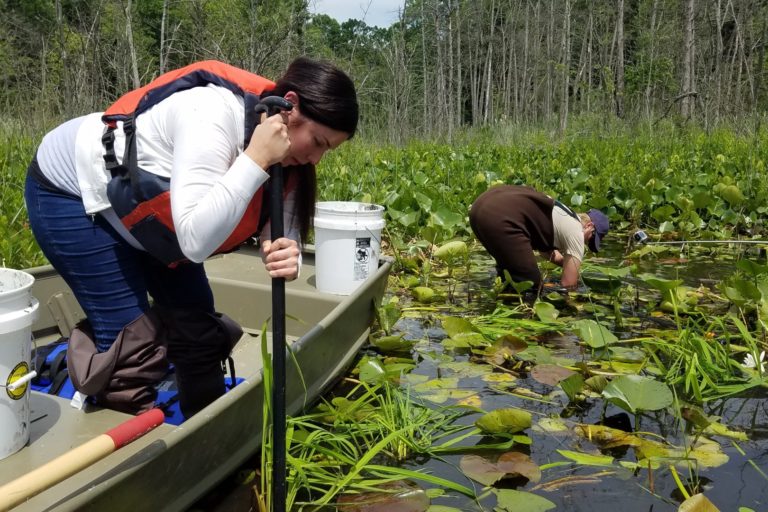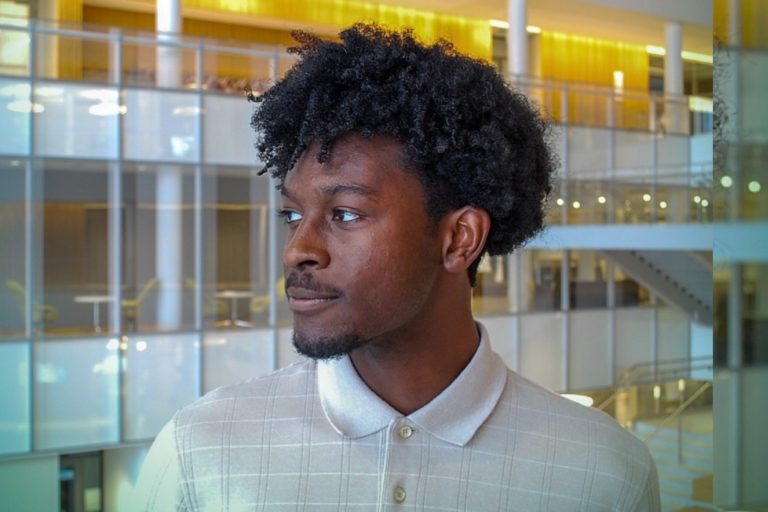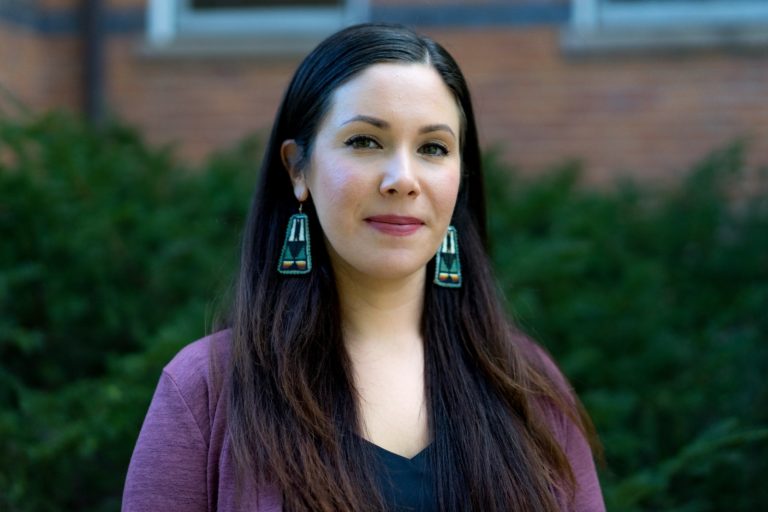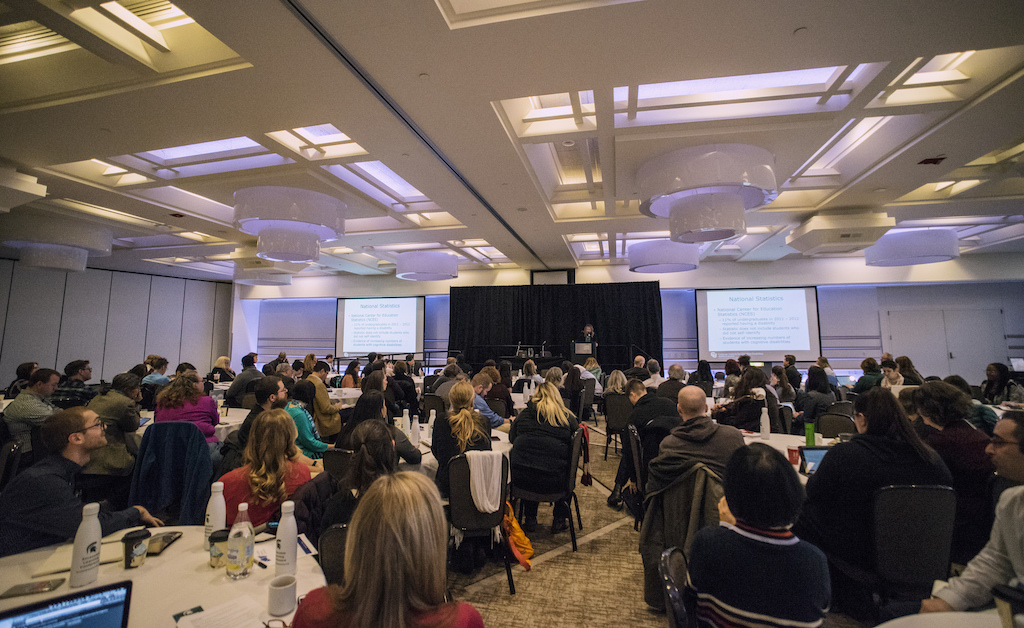
The 4th annual Accessible Learning Conference will take place December 6 and 7 at the Kellogg Hotel and Conference Center. Each year, the Accessible Learning Conference (ALC) devotes time to explore different avenues concerning accessibility. This year, the ALC will explore accessibility as a social justice issue.
The ALC was designed to open pathways of discussion, networking, and collaboration for students, faculty, and community members about the importance of accessibility in education. The conference has grown in attendees each year, with an estimated 300 people expected to participate at this year’s conference.
“What we try to do at this conference is to go beyond the technical,” said ALC Founder and Director Kate Sonka. “We work on getting to a place where we explore how accessibility can inform what the research faculty are doing and what’s happening in the classroom. We focus on how accessibility can impact teaching to be more innovative and create new ways of learning that students might benefit from.”
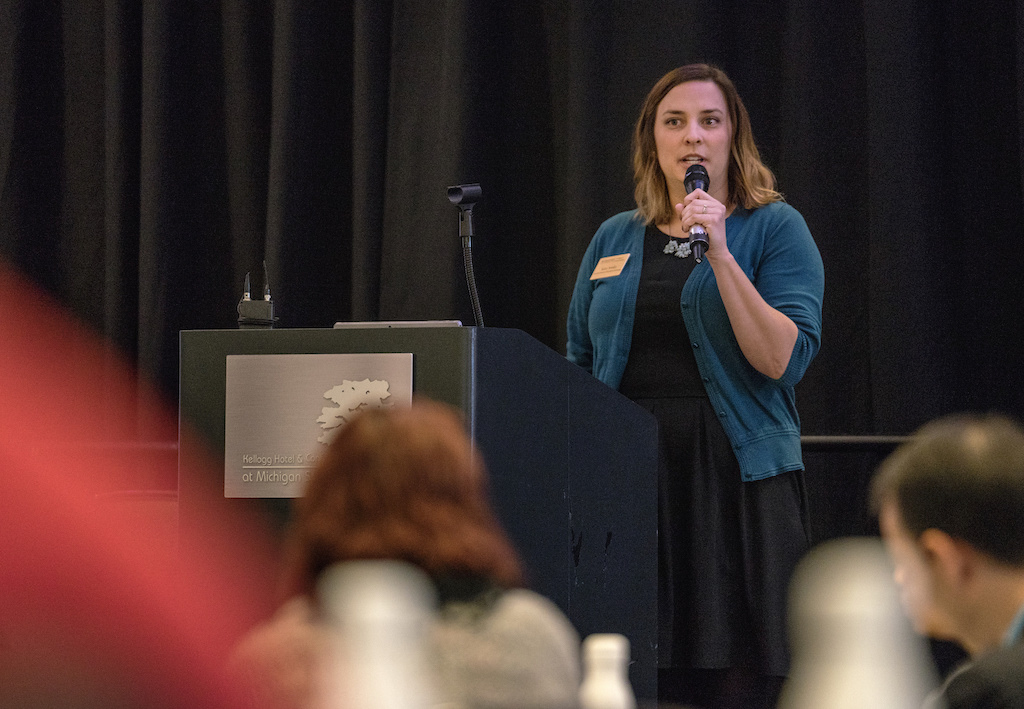
The ALC encourages both undergraduate and graduate students to submit projects they are working on that surround accessibility and disability studies. If chosen, students present their research at the conference. The 2018 conference called for submissions surrounding accessibility with social justice, which explores topics like how to be a helpful ally for people with disabilities and what social justice looks like in the classroom.
The conference will feature a variety of engagement opportunities attendees can choose from, ranging from high to low, with high engagement offering discussion-oriented presentations and low engagement featuring lecture-style presentations. These presentations will occur all day on December 6 and 7 with a break for lunch each day that provides an option for attendees to network.
“If you’re an instructor, faculty member, professor, the conference poses questions that surround what you can be doing to create a just space for learning and teaching,” Sonka said. “If you’re a learning designer or instructional technologist, it’s learning what can you do in the accessibility world to support those who are teaching. We talk about what [learning facilitators] can be doing to create content that’s available and accessible to more people.”
The ALC provides a place for different people to get together and create conversations around accessibility and network.
Keynote speaker and University of Michigan faculty member Melanie Yergeau will be presenting Intervention =/= Access: Neuroqueering the Rhetoric of Behavior and discussing her work surrounding queer studies and neurodiversity on Thursday, December 6. Yergeau is the author of Authoring Autism: On Rhetoric and Neurological Queerness, and her work has appeared in the Journal of Social Philosophy, Kairos, Disability Studies Quarterly, and College English. She has served on the board of directors of the Autistic Self Advocacy Network, a nonprofit organization run for and by people with autism, and has served on the board of the Autism National Committee.
On Friday, December 7, there will be an Engagement Fair from 8-10 a.m. that offers networking with different accessibility units on campus. Each engagement booth offers an accessibility action card that provides attendees with a tangible piece of information to take away from the conference to reference in the future. Later in the afternoon, the closing plenary session will feature a panel of MSU RCPD students that will discuss their experiences with accessibility at Michigan State University.
The conference hosts people from outside of the MSU community to contribute to the conversation as well. Attendees come to the conference from different universities, governmental offices, and different advocacy organizations each year.
“The ALC provides a place for a lot of different people to get together and create conversations around accessibility and network.” Sonka said. “This is a place where everybody is invited to come together and talk about it, and because there are students at the table as well, it makes it feel like a community conversation.”
Registration for the conference is open until Wednesday, November 21, and includes breakfast, lunch, refreshments, and parking passes for the Kellogg Center.
